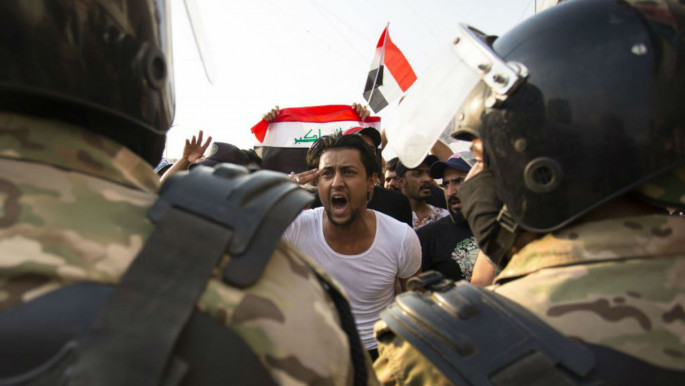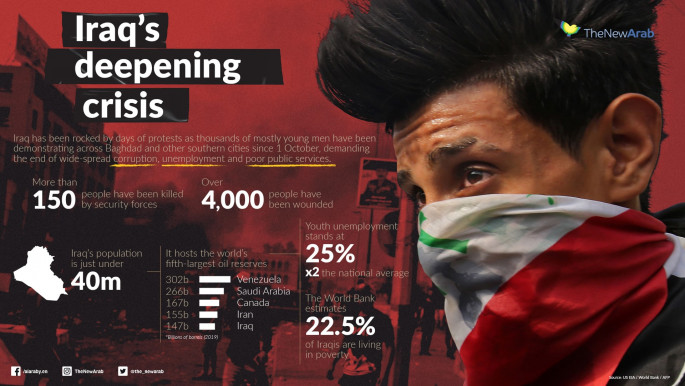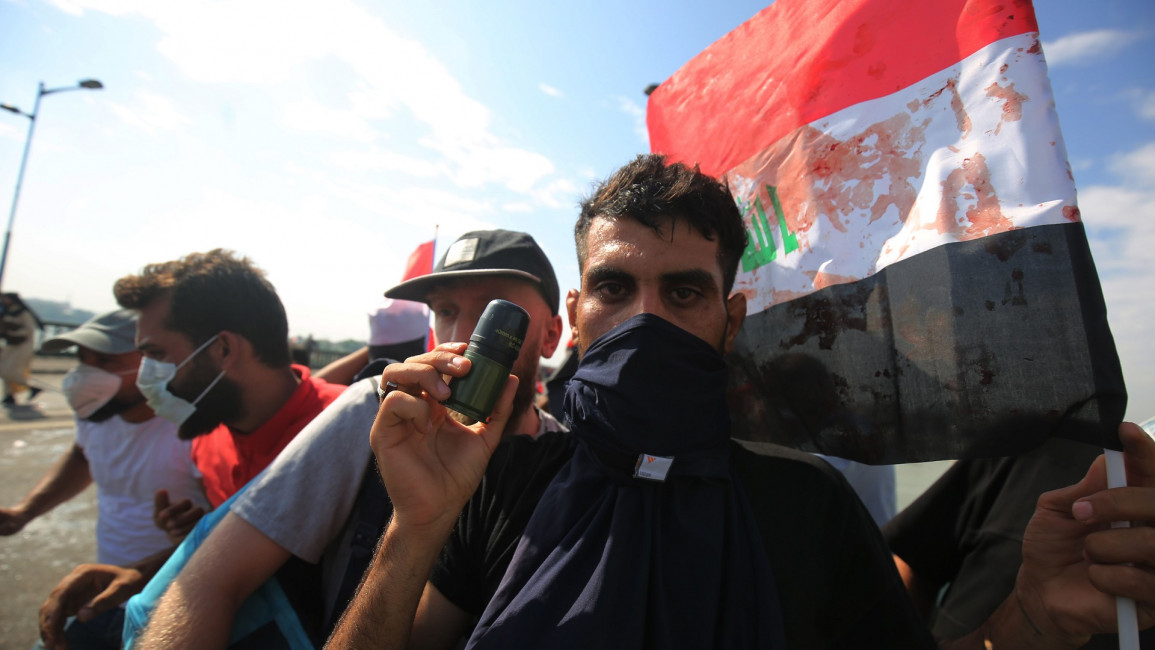'We want dignity': Two killed as massive anti-government protests rock Iraq
Thousands of protestors massed in Baghdad in Tahrir Square, in front of Al-Jumhuriya Bridge and Aviation Square, and in the high security Green Zone.
Security forces cut three bridges linking the Karkh and Rusafa sides of Baghdad on the Tigris River as demonstrators chanted "the people want to overthrow the regime" in an echo of the slogans used in the protests in Lebanon.
The number of protesters is expected to swell further after popular Shia cleric Muqtada al-Sadr called for his supporters to join in the protests earlier this week.
Protests first erupted on 1 October to demand an end to widespread corruption, unemployment and an overhaul of the political class. They were met with violence from security forces that left more than 150 dead.
 |
|
| Read more: Iraqi army commanders sacked as new official protest death toll released |
Activists called for the resumption of the protests on Friday, which marks a year since Prime Minister Adel Abdel Mahdi came to power.
A staggering one in five people lives in poverty in Iraq and youth unemployment is at around 25 percent, according to the World Bank. This is despite the fact that Iraq is the OPEC's second biggest oil producer, which is ranked as the 12th most corrupt state in the world by Transparency International.
Iraq's highest Shia authority Grand Ayatollah Ali al-Sistani is expected to give a sermon this afternoon that will set the tone for the protests, and followers of former militiaman turned cleric Muqtada al-Sadr are expected to join in later in the day.
'We're not hungry, we want dignity'
A few dozen protestors had marched towards the Green Zone during the night but were pushed back by seucirty forces armed with water cannons.
"We're not hungry - we want dignity!" one protester shouted in Baghdad, while another lashed out at "the so-called representatives of the people who have monopolised all the resources".
Other rallies also took place in the southern cities of Diwaniyah and Nasiriyah, where demonstrators said they would remain in the streets "until the regime falls".
This movement is unprecedented in Iraqi history because of its spontaneity and independence, and because of the brutal violence with which the demonstrators were met on October 1-6.
At least 157 people were killed, according to a government probe published on Tuesday, which acknowledged that "excessive force" was used. The majority of them were protestors in Baghdad, with 70 percent shot in the head or the chest.
Prime Minister Adel Abdel Mahdi issued several measures to ease public anger, including higher pensions for the families of those who were killed. He defended his reform agenda in a television appearance on Friday, telling protesters that it was their "right" to demonstrate as long as they did not "disturb public life".
Sadr has instructed his own paramilitary to remain on "high alert" and are expected to be seen in parts of Baghdad in a show of force.
Other groups however support the government and call the protests a conspiracy, the most powerful of which is the Hashed al-Shaabi, whose political wing is the second-largest bloc in the parliament.
Other parts of the country - the mostly-Kurdish north and Sunni west - have stayed out of the protests.
Iraq has been destroyed by violence and conflict since the American invasion in 2003, but relative calm was restored in 2017 when the Islamic State group was defeated.
However the country has been economically destroyed through war, corruption and mismanagement, leaving people with no financial prospects or stability.
 |
|
| [click to enlarge] |
Agencies contributed to this report.
Follow us on Twitter: @The_NewArab



